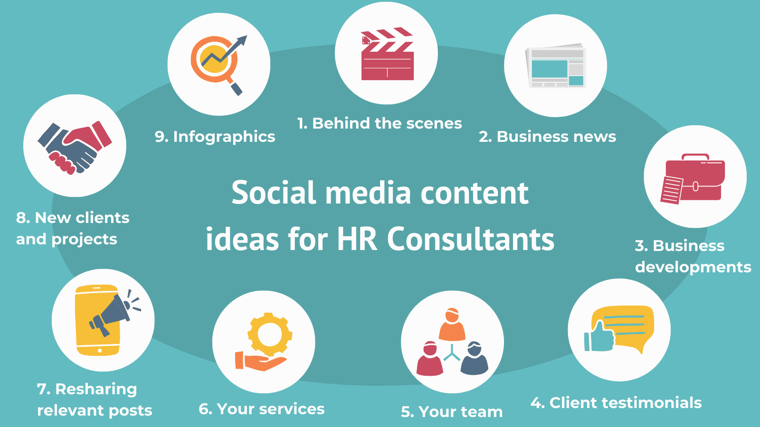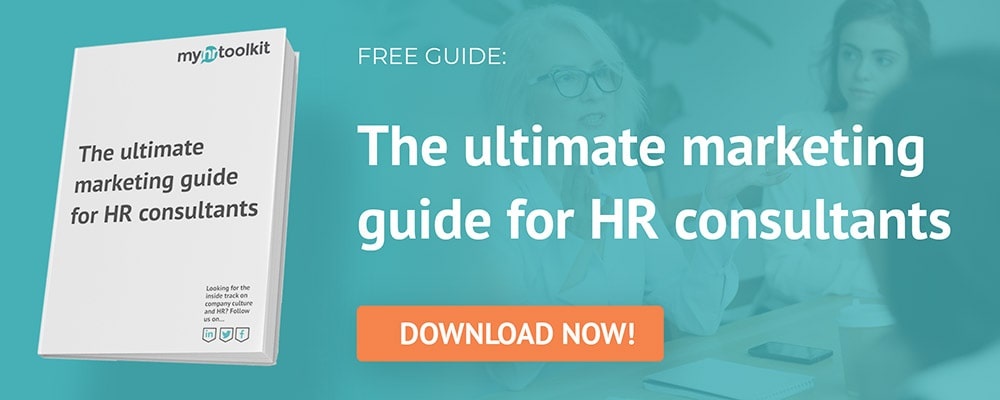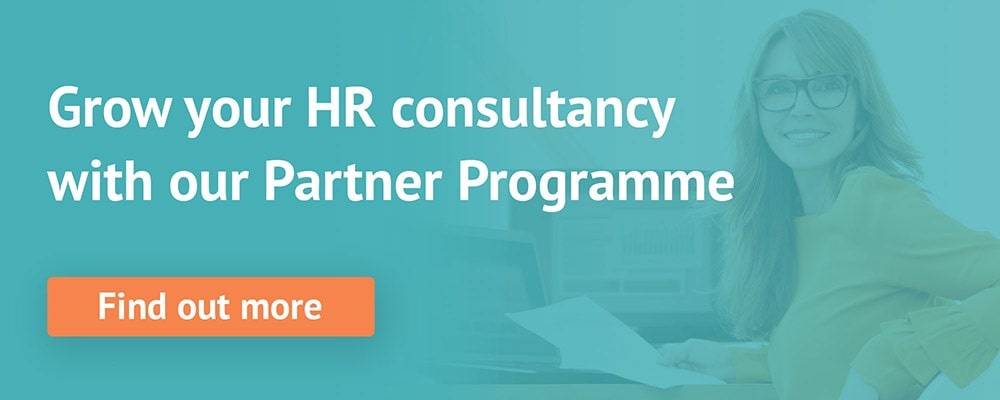Investing time in social media marketing as a HR Consultant is a great way to advertise your services whilst staying connected with your community. If done right, social media can be a great tool to boost client engagement, increase traffic to your consultancy’s website and develop your brand’s personality online. In this blog post, we’ve outlined 6 key steps for using social media to grow your HR Consultancy.
1. Outline your objectives
Taking a step back to identify what you want to achieve out of using social media for your consultancy is a useful way to inform your future content, strategy and personal engagement with social media. Increasing your client base may be an obvious objection, other examples can include:
- Increasing followers
- Increasing engagement
- A higher click-through rate to website (CTR)
- Promoting brand personality
- Increasing brand authority
Outlining your consultancy’s objectives will also help you to measure the success of using social media to market your consultancy in the long run.
2. Audit your current social media activities
Making an audit your current social media activities is a useful step to understand how effective they are in contributing to your consultancy’s success. Running a social media audit can also help you to prioritise activities and identify if there is room for improvement.
- Auditing individual platforms – It’s the norm for most businesses to have a business account set up on multiple social media platforms. However, the business’s engagement on each platform may differ and specific industries are better suited with certain platforms. For example, product focussed B2C companies are most effective concentrating efforts on platforms such as Instagram and Facebook because of the platforms’ visual layout, shopping features and promote brand personality. In most cases for businesses operating B2B, LinkedIn is a great platform to promote business services, network with stakeholders and actively find new clients. As an HR Consultant, an audit can underline your success on each of the platforms and deliberate how effective each of these platforms are for your business’s objectives.
- Followers – Identifying how many followers you have on each platform can be a great indication of the quality of your content and the general interest in your business. Comparing followers across different platforms can also help you determine what platform is most effective for your business to be active on.
- Engagements – engagements on social media include likes, comments, shares, and direct messages. Auditing your consultancy’s engagements on individual platforms can identify how involved your network is with your business, the quality of your content overtime as well as the popularity of individual posts.
3. Brainstorm content ideas
The fist hurdle many businesses fall at is identifying what type of content they should post. Firstly, a place to start is by looking at individual posts that have been highly engaged with across your social media platforms and identifying any trends. Analysing your top performing posts can also infer what type of content your followers are interested in viewing and inform what content to produce in the future.
Secondly, brainstorming other content topics can also help to get the ball rolling and increase the diversity of your social media content - which can help your audience stay engaged over time and reduce content fatigue. Further analysing how engaged your audience was with new content topics can also improve your overarching content strategy in the long-term.
Here’s some ideas your HR Consultancy:

4. Stay consistent
Posting consistently is an effective and free way to maintain your brand presence on social media. Many businesses owner may feel pressured to post regularly, but every business is different, and some may have more content opportunities for than others. The important aspect of posting on social media is to prioritise quality over quantity.
5. Connect with your network
Beyond posting regularly, engaging with your network’s content can be an easy and effective way to remain in the minds of those you have an existing relationship with. Your consultancy can do this by liking, sharing, commented, or reacting to the conversations happening within your network.
As a consultant, it’s also important to track if you’re connecting in with new people in your professional network. For example, you may have recently got a new client or a supplier and may want to start building a professional relationship with. Professional social media sites such as LinkedIn can help bridge a relationship away from email and to a platform less formal and more personable.
6. Measure your results
Measuring your consultancy’s efforts can help to identify the benefits of using social media to market your services whilst highlighting areas to be improved on. For every social media platform, there are free inbuilt analytics tools that are at your disposal to use.
It’s important for every business to make regular checks on their progress with social media so it can help inform your business’s future strategy and direction.
Myhrtoolkit is a leading HR software provider for SMEs. We work with HR consultancies as partners, so they can offer HR software as a key service to clients. To learn more, head to our Partner Programme page.

Written by Hannah Wheater
Hannah is a Senior Marketing Executive for myhrtoolkit who writes on topics including HR technology, workplace culture, and marketing advice for HR Consultants.


 Holiday Planner
Holiday Planner Absence Management
Absence Management Performance Management
Performance Management Staff Management
Staff Management Document Management
Document Management Reporting
Reporting Health and Safety Management
Health and Safety Management Task Management
Task Management Security Centre
Security Centre Self Service
Self Service Mobile
Mobile





